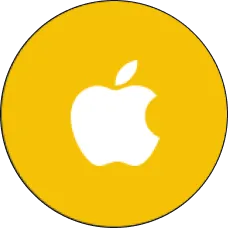PODCASTS
SOLD WITH WEBINARS
PODCASTS
SOLD WITH WEBINARS
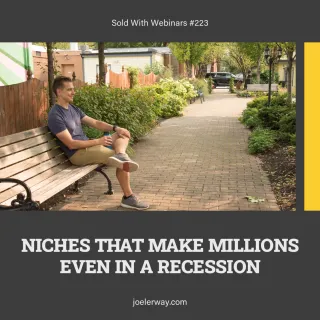
Niches That Make Millions Even In A Recession | SWW 223
demo blurb goes here to explain the podcast episode so people know why to click and read / listen / watch ...more
Sold With Webinars
May 22, 2023•1 min read
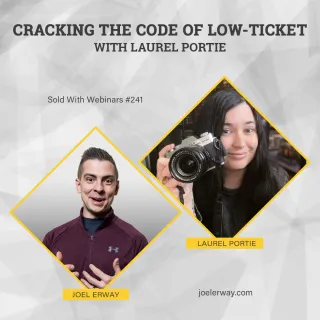
Cracking the Code of Low-Ticket | SWW 241 with Laurel Portie
demo blurb goes here to explain the podcast episode so people know why to click and read / listen / watch ...more
Sold With Webinars
May 02, 2023•1 min read
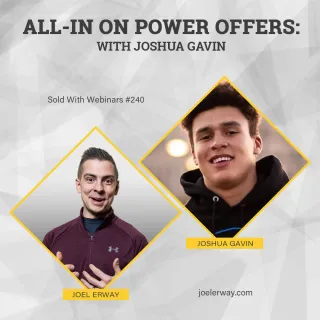
All-In On Power Offers | SWW 240 with Joshua Gavin
demo blurb goes here to explain the podcast episode so people know why to click and read / listen / watch ...more
Sold With Webinars
April 19, 2023•1 min read

My Week With Richard Branson | SWW 239
demo blurb goes here to explain the podcast episode so people know why to click and read / listen / watch ...more
Sold With Webinars
April 03, 2023•1 min read
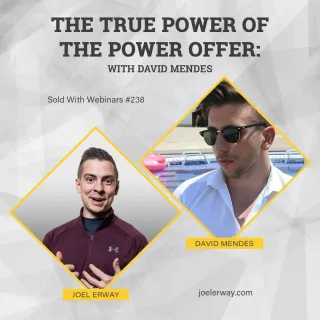
The True Power of the Power Offer: SWW 238 with David Mendes
demo blurb goes here to explain the podcast episode so people know why to click and read / listen / watch ...more
Sold With Webinars
March 30, 2023•1 min read
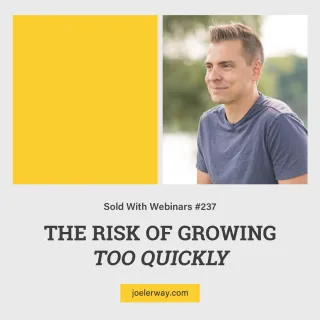
The Risk of Growing Too Quickly | SWW 237
demo blurb goes here to explain the podcast episode so people know why to click and read / listen / watch ...more
Sold With Webinars
March 02, 2023•1 min read

Virality | SWW 236
demo blurb goes here to explain the podcast episode so people know why to click and read / listen / watch ...more
Sold With Webinars
February 28, 2023•1 min read

This 1 Investment Yields 10x Every Time | SWW 235
demo blurb goes here to explain the podcast episode so people know why to click and read / listen / watch ...more
Sold With Webinars
February 22, 2023•1 min read
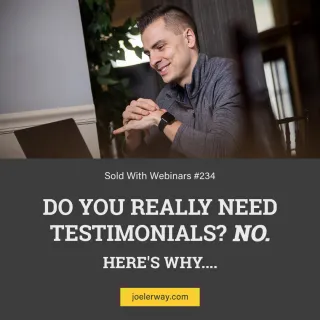
Do You Really Need Testimonials? No. Here's Why.... | SWW 234
demo blurb goes here to explain the podcast episode so people know why to click and read / listen / watch ...more
Sold With Webinars
February 15, 2023•1 min read
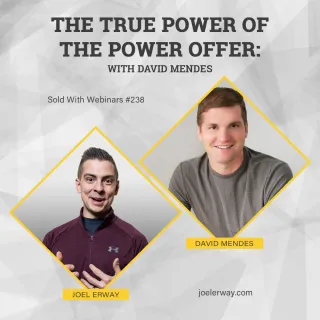
The Wacky World of Webinars with Jason Fladlien | SWW 233
demo blurb goes here to explain the podcast episode so people know why to click and read / listen / watch ...more
Sold With Webinars
December 16, 2022•1 min read
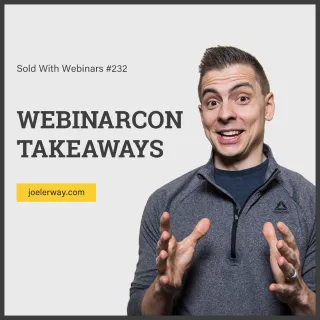
WebinarCon Takeaways | SWW 232
demo blurb goes here to explain the podcast episode so people know why to click and read / listen / watch ...more
Sold With Webinars
December 13, 2022•1 min read

HTC Book Series 07 - The Perfect Pricing | SWW 192
demo blurb goes here to explain the podcast episode so people know why to click and read / listen / watch ...more
Sold With Webinars
December 02, 2022•1 min read
Free Training: Discover How To
Launch A 7-Figure course


Free Training: Discover How To
Launch A 7-Figure course




